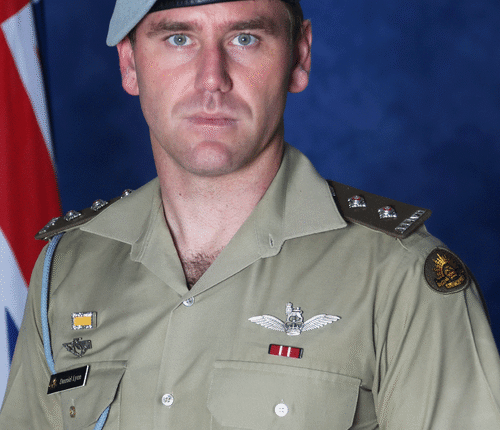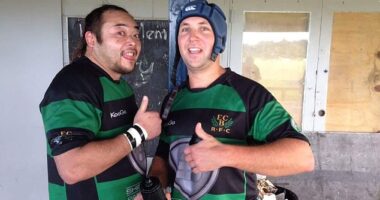A last second evasive manoeuvre by an Army pilot saved the lives of four other airmen, according to military air safety investigators.
The DFSB has attributed the fatal Army helicopter crash to spatial disorientation. Defense investigators have also determined that it was unlikely the hi-tech helmet used by the pilots for night-time flights played a role in the disaster, despite it being recognized as a potential hazard.
“It’s getting dicey,” recorded Captain Lyon telling co-pilot Lieutenant Max Nugent in the cockpit voice recorder. This occurred five seconds into a left-hand turn in staggered formation with three other Taipan MHR-90 helicopters.
The helicopter, known as Bushman 83, had just encountered rain showers. Lyon took control from Nugent at 10:33 pm and 34 seconds in response to the deteriorating weather conditions.

“During the two and a half seconds after the pushover, (flight data recorder) analysis indicates that the relative distance between the two aircraft decreased from approximately 100 metres to 50 metres,” the DFSB report says.
“In response to this increasing closure, it is likely (Lyon) acted to avoid a potential mid-air collision with BSMN 82 by executing an avoidance turn to the right.”
Lyon’s actions in these last seconds, when his own aircraft was “not recoverable”, likely saved the lives of the four airmen in Bushman 82.
Since the July 2023 crash there has been much focus on the hi-tech TopOwl helmets used by the pilots that night.
The latest software upgrade for the TopOwl, HMSD v5.10, was found to carry significant risks, according to an experienced test pilot with the Army Aviation Test and Evaluation Section (AATES).
The test pilots found that the helmet was a “substantial risk of multiple deaths” and an “unacceptable risk to flight safety” because when pilots looks to the left or the right, the pitch and roll displays inverted.
Despite this stark warning, TopOwl 5.0 was put into service when Army Aviation conducted its own tests in benign conditions, finding it safe to deploy.
DFSB confirmed that TopOwl had its problems but said it was likely not responsible for Lyon becoming spatially disoriented.
“While both AATES and Standards Section test and evaluation reports agreed that there were deficiencies relating to attitude presentation, the two agencies disagreed on the severity of the hazard,” DFSB said.
“Regardless, the investigation determined that it was very unlikely the known hazards relating to the HMSD v5.10 contributed to the loss of Spatial Orientation.
This conclusion was based on the Line of Sight of the BSMN 83 pilots, which was slightly offset from the aircraft’s longitudinal axis, and that the pilots were likely looking ‘through’ the HMSD symbology to maintain attentional focus on BSMN 82.”







